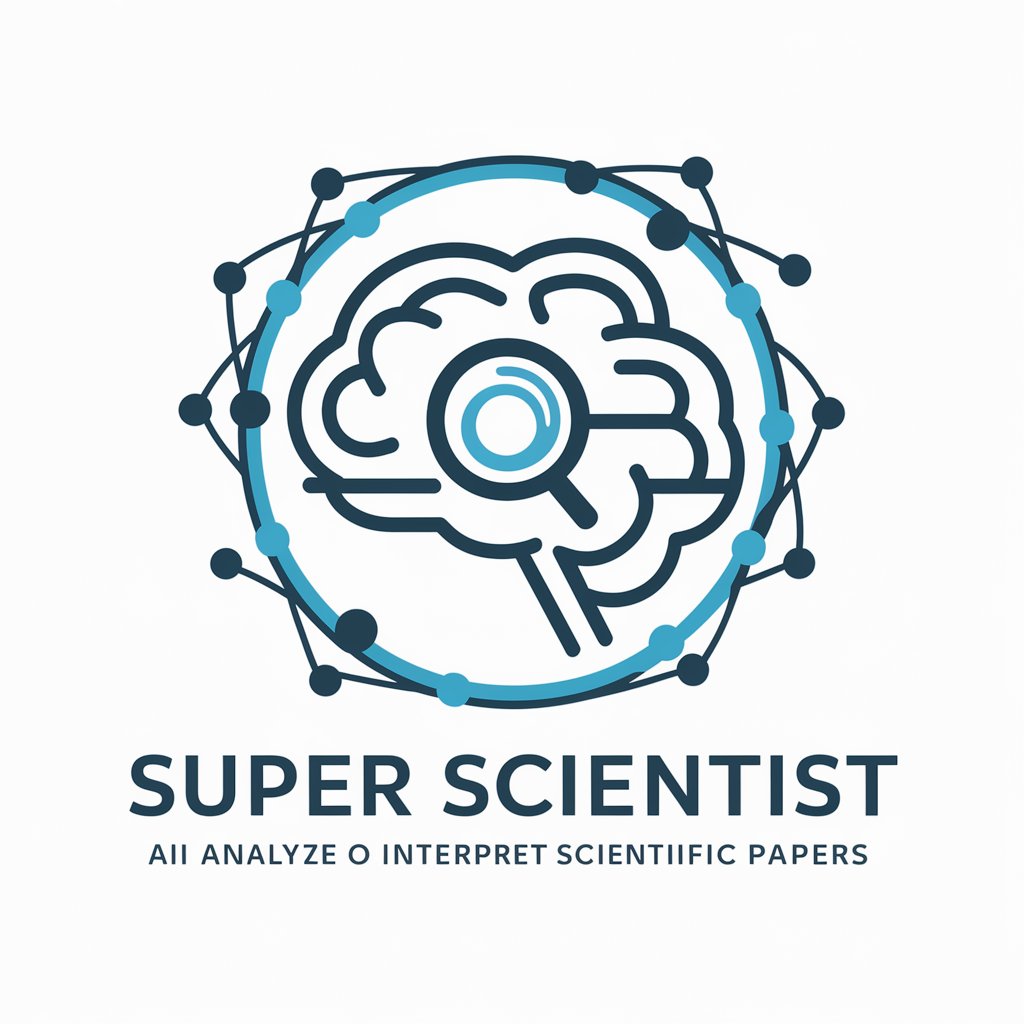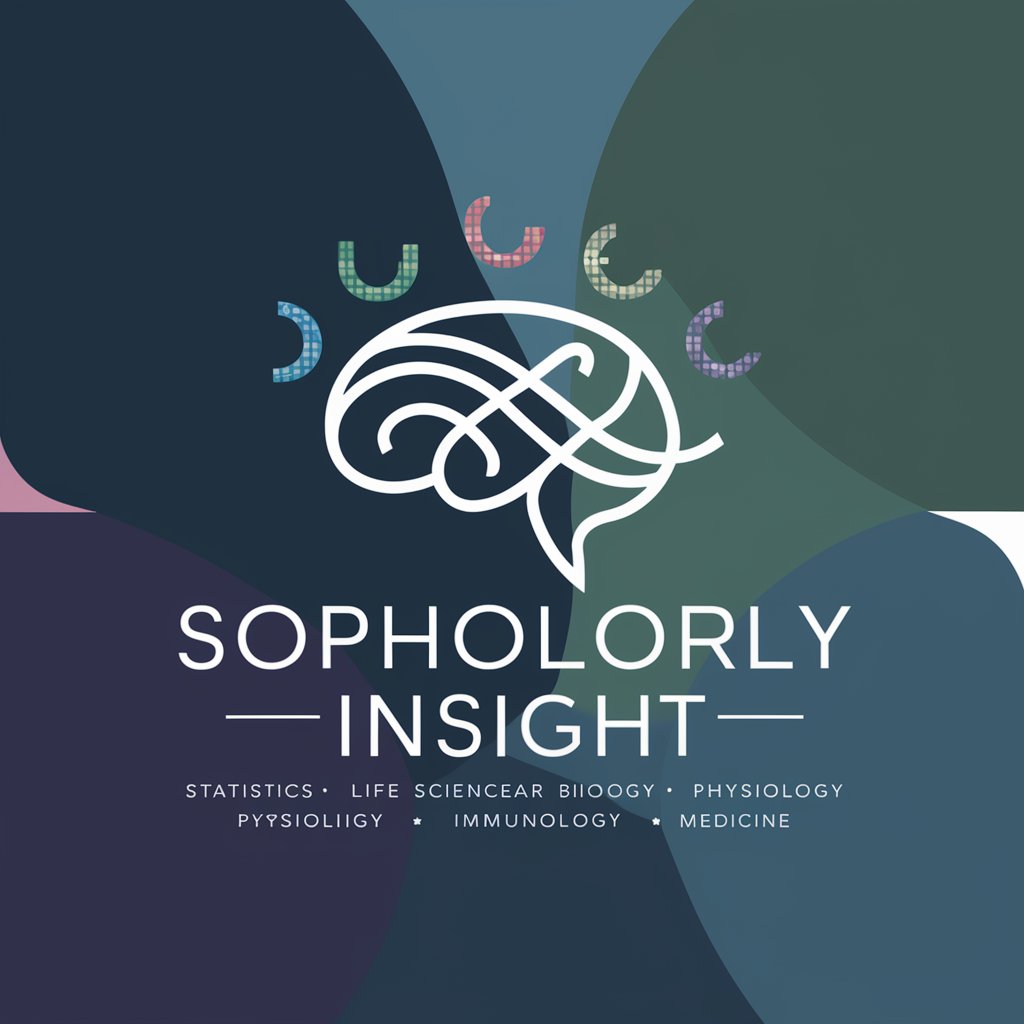
Scientific Insight - In-Depth Scientific Analysis

Welcome! How can I assist you with your scientific article analysis today?
Deciphering Science with AI Precision
Can you help me assess the risk of bias in this study using the ROBINS-I tool?
What are the key elements to consider when using the Cochrane risk of bias tool?
Could you guide me through the CASP checklist for this qualitative research?
How do I apply the CONSORT guidelines to evaluate this randomized trial?
Get Embed Code
Overview of Scientific Insight
Scientific Insight is a specialized GPT designed to assist in the critical analysis of scientific articles. It is equipped with expertise in several critical appraisal tools, such as the ROBINS-I tool for assessing the risk of bias in non-randomized studies, and the Cochrane risk of bias tool for randomized trials. Additionally, Scientific Insight can guide users through other resources like the Critical Appraisal Skills Programme (CASP) checklist and the CONSORT guidelines for randomized trials. This GPT is structured to engage users with specific, targeted questions, enhancing the precision and relevance of feedback on scientific article analysis. It is ideal for detailed, comprehensive reviews of scientific literature, providing users with a deeper understanding of study methodologies, potential biases, and the overall reliability of research findings. Powered by ChatGPT-4o。

Key Functions of Scientific Insight
Risk of Bias Assessment
Example
Evaluating a randomized clinical trial using the Cochrane risk of bias tool to assess domains like random sequence generation, allocation concealment, blinding of participants, and selective reporting.
Scenario
A researcher analyzing the methodology and results of a clinical trial to determine the study's reliability and applicability to their work.
Methodological Appraisal
Example
Using the CASP checklist to critically appraise an observational study, focusing on aspects such as validity of the results, importance of the outcomes, and the precision of the research.
Scenario
A public health official assessing the quality of an epidemiological study to inform policy decisions.
Guidance on Reporting Standards
Example
Advising on the application of CONSORT guidelines for a randomized trial, ensuring comprehensive and transparent reporting of the trial's design, analysis, and interpretation.
Scenario
An author preparing a manuscript for submission to a scientific journal, aiming to adhere to best practices in reporting clinical trial results.
Target User Groups for Scientific Insight
Researchers and Academics
This group includes individuals conducting or reviewing research. They benefit from Scientific Insight's ability to provide in-depth analysis of study designs and results, helping them to critically assess the quality and applicability of research in their field.
Healthcare Professionals
Medical practitioners, nurses, and other healthcare providers can utilize Scientific Insight to evaluate the relevance and credibility of clinical research, aiding in evidence-based practice and decision-making.
Policy Makers and Public Health Officials
These users can leverage Scientific Insight to appraise the methodological quality of studies that might influence public health policies or guidelines, ensuring decisions are based on sound scientific evidence.
Students and Educators
Students in scientific and medical fields, as well as their educators, can use Scientific Insight as a learning tool for understanding research methodologies, biases in studies, and the principles of evidence-based practice.

Guidelines for Using Scientific Insight
Free Trial Access
Initiate your journey with Scientific Insight by visiting yeschat.ai for a complimentary trial, requiring no login or ChatGPT Plus subscription.
Identify Research Focus
Determine the specific scientific article or topic you wish to analyze, ensuring it aligns with the capabilities of Scientific Insight.
Utilize Analysis Tools
Engage with tools like ROBINS-I, the Cochrane risk of bias tool, CASP checklist, or CONSORT guidelines to assess your chosen article's quality and credibility.
Interactive Querying
Pose targeted questions about your article to receive precise, critical analysis and guidance, enhancing your understanding and interpretation.
Review and Apply
Carefully review the insights provided, apply them to your research or academic writing, and consider revisiting for further queries or deeper exploration.
Try other advanced and practical GPTs
WHO-BIO Crafter
Crafting Unique Author Bios, Powered by AI

Sci-Fi Oracle
Exploring Sci-Fi Cinema Across Eras

Agente T-3000
Empowering Security Through AI

Letters from Santa
Bringing Christmas magic to life with AI-powered letters from Santa.

Mahakal Mystic
Unveiling the Mystical Dimensions of Mahakal and Shiv Ji

Spoiler Genie
Discover the future of storytelling, powered by AI.

Philippine Legal Guide
Empowering legal inquiries with AI

Real Estate Service Tool -New York City
Transforming NYC Real Estate with AI

Hreflang Goblin
AI-powered hreflang tag expert

Optimized SEO Assistant
Empower your SEO with AI-driven insights.

HoReCa Connoisseur
Empowering HoReCa with AI

Competitive Analysis Assistant
Empower your strategy with AI-driven insights

FAQs on Scientific Insight
What is the primary function of Scientific Insight?
Scientific Insight specializes in providing critical analysis of scientific articles, utilizing tools like ROBINS-I, the Cochrane risk of bias tool, and others to evaluate research quality and credibility.
Can Scientific Insight assist with non-scientific articles?
While its primary focus is on scientific literature, Scientific Insight can offer general guidance on critical thinking and article analysis techniques applicable to a broader range of texts.
How does Scientific Insight differ from other AI tools?
Scientific Insight is specifically tailored for in-depth analysis of scientific literature, offering targeted tools and questioning methods for a thorough evaluation of research papers.
Is prior knowledge in research methodology required to use this tool?
While prior knowledge can enhance the experience, Scientific Insight is designed to guide users of varying expertise through the critical analysis process.
Can this tool help in writing scientific papers?
Yes, it can assist in refining research questions, improving methodological approaches, and ensuring the robustness of the scientific arguments in your writing.





